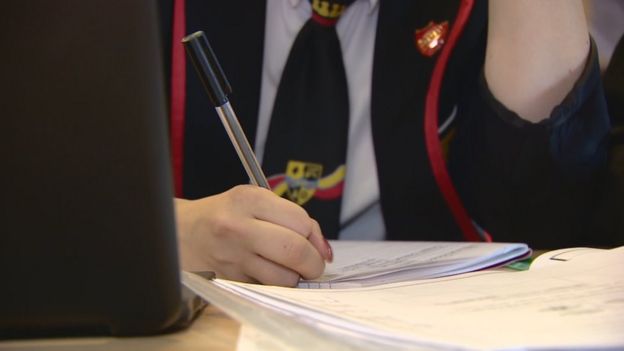
One underlying challenge is persuading more science and technology students to consider becoming teachers.
A new teacher-training course at Strathclyde University cuts the time it takes for some new teachers to qualify - in effect combining traditional teacher-training and a student's probationary year.
Another scheme in the North East aims to help people who previously worked in the offshore oil and gas industry to retrain as teachers.
All teacher-training programmes in Scotland have to be approved by the General Teaching Council for Scotland - an independent professional body which includes representatives from the unions and the profession itself as well as other stakeholders.
The Scottish government is expected to issue a tender document in the coming weeks for a new course to help widen the ways into teaching.
While the EIS union is happy to consider ways of widening the pathways into teaching, it believes the traditional method of becoming a secondary teacher - a one-year postgraduate course followed by a probationary year in a school - should still be the main method.
It would strongly oppose any attempt to introduce courses which would see new trainees placed in the classroom at an early stage.
The charity Teach First, which runs such a scheme south of the border, has held talks in Scotland about this possibility.
Generally the unions believe recruitment problems do not provide a pretext for radical changes to teacher-training.
They claim the solutions involve persuading more science or technology graduates to become teachers and making sure the profession is sufficiently attractive.
EIS general secretary Larry Flanagan added: "With schools having only recently returned for the new term, unfilled vacancies are obviously a cause for concern.
"The challenge in recruiting teachers in certain subjects and geographical areas should be taken as an early warning of what might develop if action is not taken to make teaching a more attractive career option, including a significant improvement in teachers' pay and conditions and reduction in excessive teacher workload."
Grow your own teacher
Other initiatives include "grow your own" schemes to train people to become teachers within their local area.Aberdeenshire Council's director of education and children's services, Maria Walker, said such schemes had allowed people who already live in Aberdeenshire and who want to stay in the area to become teachers.
She said: "The downturn in the oil and gas industry has hit the North East of Scotland hard and there are lots of very experienced and technically skilled people looking for a new job or a new career.
"A number of candidates recently completed a programme specifically designed to help them make the transition from the oil and gas industry to teaching and are now on the verge of starting their probation year."
Comments
Post a Comment